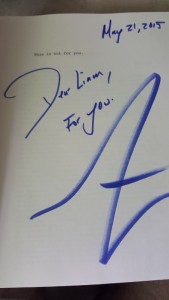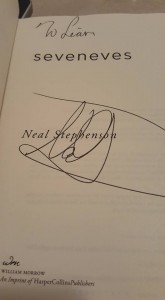Wow, has it really been nearly 3 years since I first wrote about Apex Publishing along with my opinion on consuming short fiction? In that post, Print is Dead, I opine that paper as the means of consuming short fiction was terminal, if not dead already. I still feel that way; nothing has changed on that front.
As I said then, there are still some holdouts in the magazine business, publications that have a name to bank on. Though, I do wonder if nostalgia, or even some ironic hipsterism, may lead to a rejuvenation of print anthologies of short stories and novellas…. I doubt it. Even if there is a small rise in print, it will be niche and short-lived.
But here is the point of my returning to the topic: 10 years ago Apex Publishing began as a small project by a guy with an idea and a dream. Well, so I assume — his memoir isn’t out yet. But in his latest blog post, Apex owner John Sizemore describes that modest beginning:
Although I started the publication for the simple goal of channeling my creativity, it didn’t take long for me to realize something else. I would rather be editing, publishing, and writing than doing software development.
Since my original blog post, Apex has significantly exploded their print business for long fiction, while still breaking waves and doing amazing with their e-magazine for short fiction. And really, that’s just incredible and, to be honest, quite envious. As it happens, Apex as a business, and Sizemore as a publisher and editor and entrepreneur, are my models. Now that I’m beginning to solidify vision for Tragic Sans Press, he’s done exactly what I want to be doing, but in our own genre niche.
I love Apex (I have the t-shirt!), and respect the heck out of Sizemore. I congratulate them on the last 10 years and wish them decades more success!
Now, back to work making my own dreams come true…








